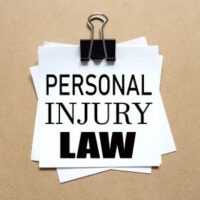What Happens at a Deposition in a California Personal Injury Case?

If you were injured in an accident and take legal action to seek monetary damages, it is likely that you will be called for a deposition by opposing counsel. California discovery rules cover depositions, which are considered a type of oral discovery. Written discovery, such as interrogatories and requests for documents, are also important tools. However, a deposition will require your presence. It is basically an interview, where you will answer questions posed by the other party’s lawyer.
A deposition might seem intimidating, but this is mainly because you do not know what happens. Though you will be asked very detailed questions, a deposition is an opportunity to tell your story about how the accident occurred and the ways your injuries affect your life. Plus, your Oakland personal injury attorney will be at your side to prepare you before the deposition and support you during the session. A summary of how depositions work is also helpful.
Parties in Attendance: Besides you and your lawyer, the others who will participate or attend your deposition include:
- The court reporter, who swears you in, records the session via audio, transcribes the proceedings into a stenotype machine;
- The attorney who called you for a deposition, who is usually representing the insurance company in an accident claim;
- Lawyers for other parties, if there are multiple plaintiffs and/or defendants in the case.
Introductions and Initial Steps: The deposition begins when the court reporter swears you in, so keep in mind you must be truthful in your answers. The deposing attorney will make some introductory statements to identify the case number and you as the deponent. The lawyer will then include some instructions for you. Important points include using clear Yes or No answers, instead of shaking the head, nodding, or mumbling.
Questions for the Deponent: After the introductions, the deposing attorney will get into some of the details of the case with questions to you. They will likely cover:
- What you were doing immediately before the accident;
- Where you were headed, if you were in an auto crash;
- Your description of the scene before and after the incident;
- Your injuries, though you will not be asked about highly technical medical issues;
- How your injuries limit you at home, work, and personally; and,
- Other relevant matters.
Tips for Success at Your Deposition: Your lawyer will spend time addressing your concerns and coaching you for the deposition, but some additional tips are helpful:
- Dress as if you were doing a job interview.
- If you do not know the answer to a question, say so. Do not speculate or guess.
- Always be fully honest, as your answers are given under oath.
Your Oakland Personal Injury Lawyer Will Guide You
The thought of a deposition might seem daunting, but our attorneys at Venardi Zurada, LLP will prepare you sufficiently to ease your concerns. To learn more about our legal services, please contact our offices in Oakland or Walnut Creek, CA. We can set up a complimentary case assessment with a knowledgeable personal injury attorney.
Source:
leginfo.legislature.ca.gov/faces/codes_displayText.xhtml?lawCode=CCP&division=&title=4.&part=4.&chapter=9.&article=1

 The Official Injury Attorneys of the San Francisco 49ers
The Official Injury Attorneys of the San Francisco 49ers